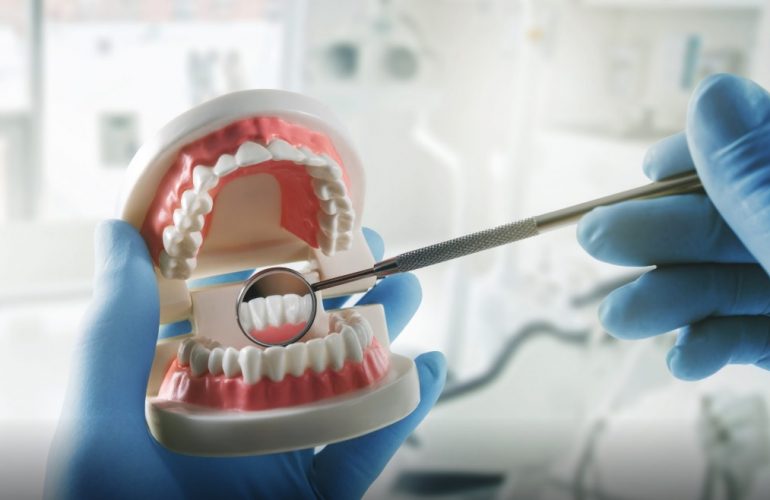How to Take Care of Your Teeth at Home

We recommend the first three procedures to be done at least twice a day and the practice of keeping a healthy lifestyle be regularly maintained as this greatly reflects on the state of oral health.
First, the amount of toothpaste you dispense on the bristles of your toothbrush matters.
Depending on the age, the amount of toothpaste increases and for adults, the whole expanse of the length of the bristles should be generously covered with toothpaste. Use a soft-bristled brush to prevent tooth abrasion and to make it easier for you to brush teeth surfaces.
You should also know the proper tooth brushing technique to effectively eliminate plaque build-up. Angle your toothbrush at 45 degrees to the gums and gently move the brush back and forth. Brush the outer surfaces, inner surfaces, and chewing surfaces of the teeth and the tongue.
Next, flossing helps with removal of food stuck in between the teeth and it also helps with cleaning below the gum line. Effective flossing should allow you to lodge the dental floss in between teeth and gently scoot it against the side of the tooth to the tooth root to remove the irritants located below the gum line.
For mouth washing, not only does this keep your breath fresh but certain ingredients can also combat the growth of bacteria.
Lastly, keep in contact with a dentist near Sydney. While these at-home oral hygiene practices do fight off bacteria and reduce chances for dental concerns, a regular visit to your dentist Sydney CBD helps with eliminating plaque from within the gum line and other surfaces of your teeth which cannot be thoroughly cleaned by regular tooth brushing and mouth washing.
Your Sydney CBD Dentist would schedule you for a twice a year appointment with them for comprehensive dental check-up and dental cleaning. These two are preventive measures which if coupled with your regular home care dental routine would considerably reduce future dental problems.



